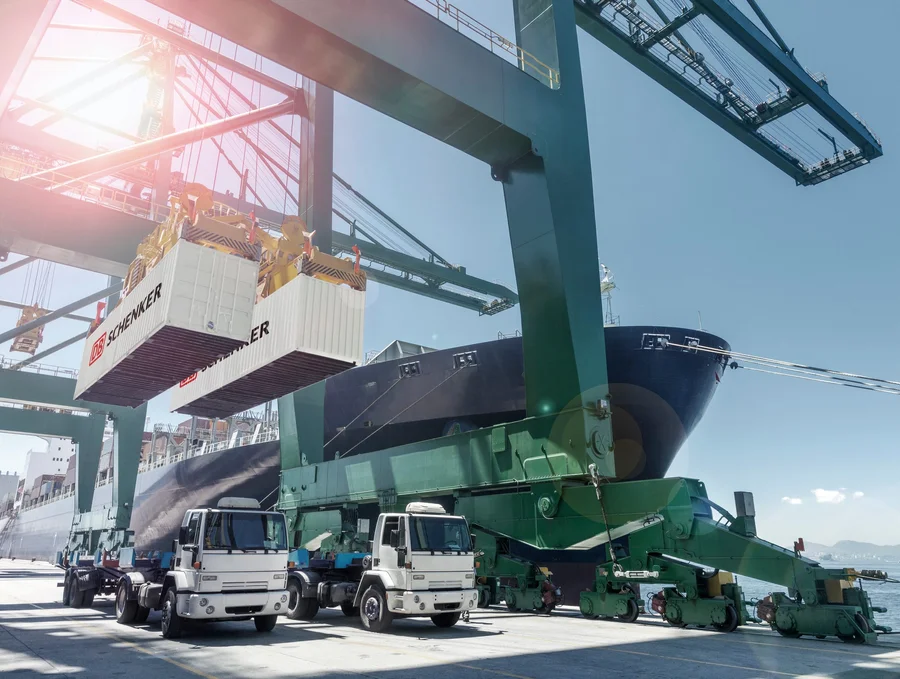Logistics company DB Schenker is working with Microsoft Cloud Logistics on the use of sustainable aviation fuel and sustainable marine fuel to decarbonise.
With around 400,000 customers, DB Schenker can make a big impact on the Scope 3 emissions of companies around the world.
The company has been leveraging collaborations to improve sustainability throughout supply chains.
DB Schenker is working with Microsoft Cloud Logistics on the use of sustainable aviation fuel (SAF) and sustainable marine fuel (SMF).
This partnership aims to reduce the environmental impact of aviation and maritime transport methods significantly.
DB Schenker and Microsoft’s efforts to decarbonise supply chains
DB Schenker is set to procure SAF and SMF which will be utilised by Microsoft Cloud Logistics for its in-bound air and ocean shipments.
This initiative is expected to yield a reduction of at least 15,000 tonnes of carbon dioxide equivalent (CO₂e) emissions each year.
DB Schenker has already taken proactive steps by integrating Hydrotreated Vegetable Oil (HVO) for all its ocean shipments from California to Texas in early 2024.
Its European and North American operations will see the establishment of HVO100 fuelling stations and the introduction of electric vehicles.
“Microsoft and DB Schenker – that’s two global leaders united to reduce emissions in transportation and logistics,” says Jochen Thewes, CEO at DB Schenker.
“Our cooperation is expected to demonstrate that significant CO2e savings are feasible already in today’s intercontinental supply chains.
Cliff Henson, CVP of Microsoft Cloud Supply Chain, adds: “Microsoft Cloud Logistics is committed to leading the way in sustainable logistics.
“Our collaboration with DB Schenker has enabled the development of cutting-edge sustainable warehouses along with innovative fuel strategies across all modes of freight, exemplifying our dedication to setting industry standards in the logistics environmental sustainability arena.
“These efforts mark a significant step forward in our efforts to reduce our environmental impacts in line with Microsoft’s 2030 sustainability commitments.”
Innovations in warehousing
In their joint venture, DB Schenker and Microsoft Cloud have centred their efforts on enhancing logistics efficiency while minimising environmental impacts.
The capacity of the logistics warehouses to streamline operations and improve network efficiency using renewable energies is core to this strategy.
The collaboration has led to significant achievements, including the company’s facility in Illinois, US, being awarded the LEED Platinum-certification.
Further, the Microsoft Cloud Logistics’ warehouse in the Netherlands has earned a BREEAM Certificate Level of ‘Excellent’, signifying high standards of energy efficiency, minimal environmental impact and enhanced occupant wellbeing.
Jochen says: “The upgrade of the Netherlands warehouse to BREEAM Excellent status, and the Illinois, US SuperHub receiving the LEED Platinum Certification, are prime examples of our dedication to paving the way for more sustainable and innovative logistics solutions.”



